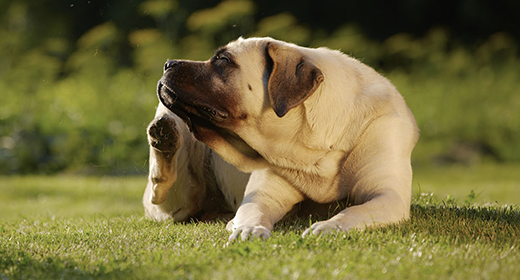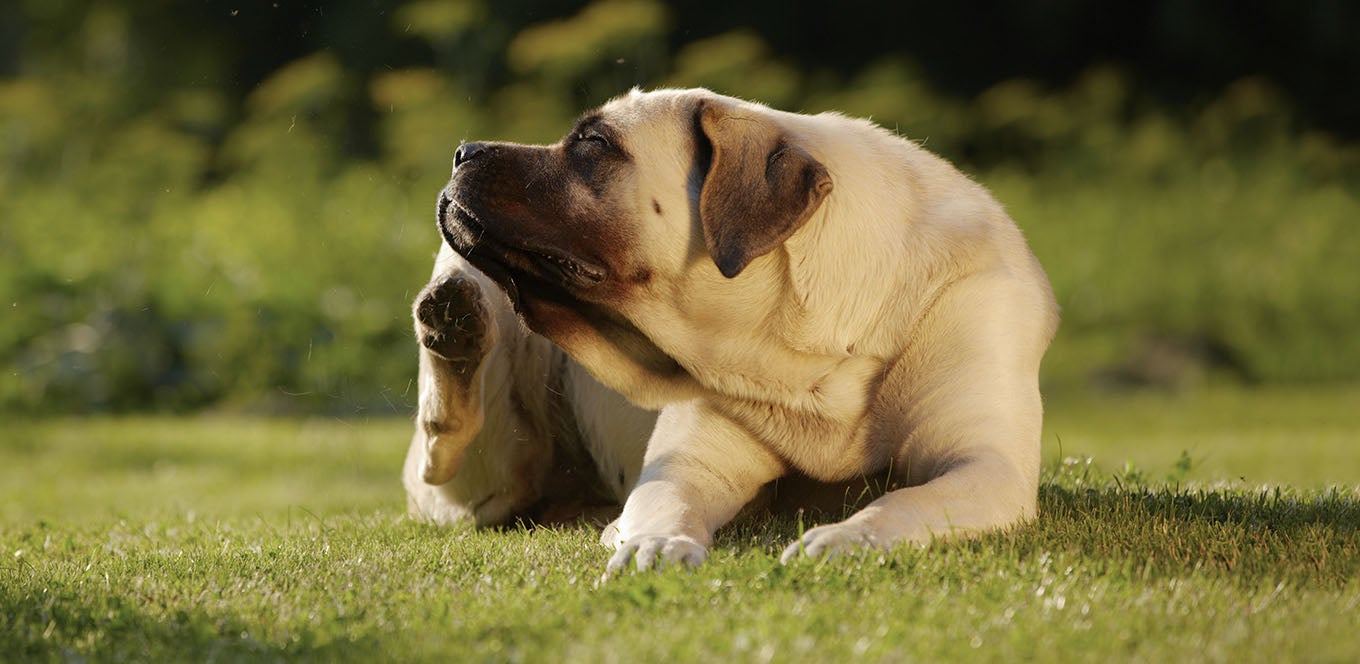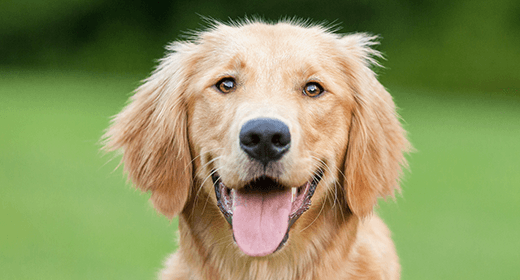

The human animal isn’t the only one affected by allergies. Like you, your adult dog can suffer from allergic reactions to any number of things—in the air, on his skin, and in his food. Allergies must be diagnosed and treated by your veterinarian, but first, you must know what to look for.
The most common signs and symptoms of allergies include:
The most common allergy symptoms in dogs are the skin reactions, regardless of the cause. And they can they can crop up at any age. Just because he didn’t have allergies as a puppy, doesn’t mean your dog won’t have them now that he’s an adult. Inhalant, food, contact, and flea allergies are four of the most common types of allergies that might affect your dog.
Inhalant allergies in dogs are caused by the same common allergens that affect you—dust, grass, trees, mold, pollen, ragweed, etc. They can be seasonal or persistent and, while some breeds (especially short-snouted breeds) might experience the same sniffly, sneezy symptoms you might suffer, skin reactions are most common. Inhalant allergies often can be treated with the same medications you take, but please don’t treat your dog’s allergies without veterinary supervision.
Food allergies can be the most difficult to diagnose and manage. Treatment involves a hit-and-miss approach involving a restricted diet and the gradual reintroduction of possible allergens to determine the culprit. Skin reactions to food allergies are common in dogs, but frequent vomiting or diarrhea also can be a sign. Keep in mind that if there is a change in your dog’s diet (or he just ate something he wasn’t supposed to), he might experience an episode of vomiting or diarrhea, but this doesn’t necessarily mean your dog has an allergy. Watch and see if it becomes a persistent problem before scheduling a costly trip to the vet.
Contact and flea allergies generally cause skin irritation and are treated topically. You might be surprised to learn that most dogs are only vaguely bothered by fleas. But those that are allergic can suffer—and so can their owners. Dogs with contact and flea allergies often chew their skin raw, leading to hair loss, odor, and infection, so fastidious flea control is a must.
Allergies can vary from dog to dog, so it is important that you work with your vet to make sure your dog gets the best possible treatment. You’ll both be happier for it.



Golden Retrievers are energetic and full of stamina, so daily exercise is a must. Adult Goldens need at least an hour’s exercise every day. Like the pug, this breed is highly prone to obesity, so they will quickly put on weight without proper physical activity like running, swimming (they just love water), and playing fetch.
Caring for Golden Retrievers is a moderate issue. Golden Retrievers have two shedding seasons (spring, autumn) in a year where they shed pretty heavily. Otherwise shedding is not a major challenge. You need to brush your Golden 3-4 times per week and bathe them once a month.
Because they tend to gain weight quickly, we recommend that you monitor their caloric intake daily. This is why Goldens need complete and balanced meals that are tailor-made to meet their unique needs. We recommend giving them premium Golden Retriever food like IAMS™ Proactive Health™Adult Golden Retriever that contains L-Carnitine to support healthy weight management, Glucosamine and Chondroitin to support healthy joints, and Omega 6 and 3 fatty acids to support skin and coat health. It is best to split their daily allowance into two meals.
Recommended Golden Retrievers food intake-
| SIZE OF GOLDEN RETRIEVER | RECOMMENDED DAILY FEEDING (G) |
|---|---|
| 20-30 kg | 255-345 |
| 30-40 kg | 345-430 |
| 40-50 kg | 430-505 |
| 50-60 kg | 505-580 |
Golden Retrievers are prone to moderate levels of health issues. Common ones include cancer and blood disorders, hip and elbow dysplasia, dislocated kneecaps, skin conditions, hypothyroidism, cataracts, and ear infections.
An ideal world for a Golden Retriever is to live in a home with a medium or large-sized yard. While they do well in apartments, they need a great deal of outdoor exercise to stay fit. So if you can manage that, Golden Retrievers can do well as indoor and outdoor pets.
So, is caring for a Golden Retriever the right choice for you? Goldens are high-energy pets and are one of the friendliest breeds out there. Their friendly nature and comfort around little kids make them an ideal choice for many first-time owners.